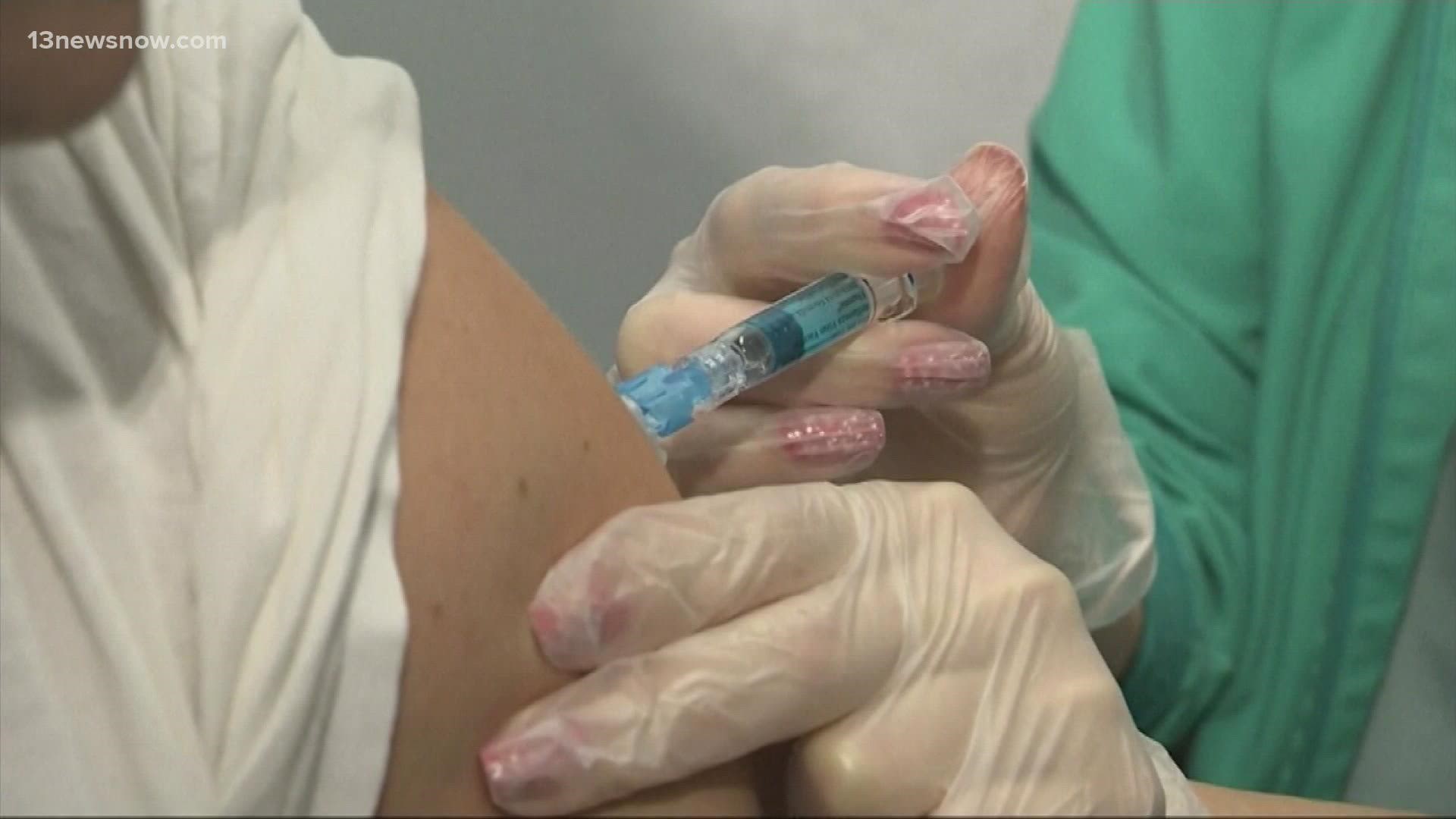NORFOLK, Va. — As Hampton Roads pediatricians see a slight rise in respiratory illnesses, federal agencies signed off on updated COVID-19 booster shots for young children.
Dr. Beth Broderick in Newport News has seen the typical cough and cold viruses in her young patients, especially since school is back in session and more students are crowding classrooms.
"I had two kids yesterday who had both strep throat and influenza," Broderick said. "I had a child the day before who had both strep throat and COVID and they're pretty miserable."
It's the same for Dr. Douglas Mitchell with Children's Hospital of The King's Daughters. He said coronavirus cases are remaining steady, but other viruses are also becoming more prevalent.
"We're seeing a little of everything right now. We are definitely seeing other viruses like we do every fall, particularly about two to four weeks after school starts," Dr. Mitchell said.
He said it comes just in time when the FDA and CDC authorized the new COVID-19 booster for children ages five to 11. The shots are designed to target the currently spreading Omicron variants.
"Now that the new bivalent booster will become available, we recommend that and both [flu and COVID] can be given at the same time," Mitchell said.
The Virginia Department of Health's dashboard shows less than 50% of children between five and 11 have at least one COVID-19 dose in the state.
Dr. Broderick has seen some parents hesitant to get their children vaccinated or boosted.
She said while parents make the choice for their children at the end of the day, the vaccine is the best way young patients like the ones in her office can avoid ending up in the hospital.
"Nobody ever wants a grown-up in the Intensive Care Unit, but speaking as a pediatrician, we really don't want the kids there," Broderick said. "All of us have to think about risk and think about how to minimize risk. So, right now, all the data we got says it's lower risk to get the vaccine than it is to catch the infection."
Dr. Mitchell said in addition to the COVID-19 doses, or if you're hesitant to get your child vaccinated, there are simple ways to help stop the spread. Not only does masking help, but Dr. Mitchell says keeping your children home when they are sick helps prevent spreading to other groups of children.
"We should no longer do what we used to do of 'oh, the child had a fever last night. I'm going to give him Tylenol and send them to daycare or school anyway.' We need to change that," Dr. Mitchell said. "If there is a fever in the last 24 hours, then there is no school, no daycare."

